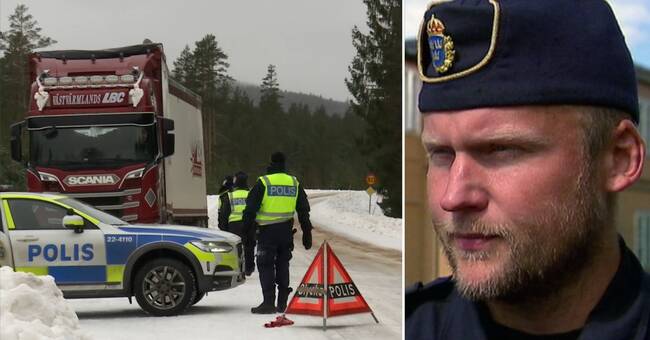At midnight, night towards Monday, the Norwegian border was closed to prevent the spread of the mutated coronavirus that is rampant in the Oslo area, among other places.
The only ones who are allowed to pass are those who have valid reasons such as commuting, freight transport and children who are to meet a parent in Sweden.
The responsibility for border surveillance lies with the Police, who at short notice have been forced to redirect their resources.
- In our work with covid, we have had a kind of future compass and this is a scenario that we have seen before us.
What we have done now is to redistribute resources so that we can live up to what our political authorities have decided on, which is to ensure that the entry ban from Norway is complied with, says Mattias Forssten at the Police in Värmland.
Secretly, the police were placed
But Mattias Forssten does not want to state how many police officers have now been reassigned to work with border surveillance, nor where the resources are taken from and not where they will be located.
- It is a considerable resource.
But we have chosen not to go out with it for operational and tactical reasons to reduce the criminal activities' ability to map us.
We have extensive border problems regarding criminal activities where goods and people are transported across the border.
and it will continue even if the border is closed.
Therefore, we do not want to talk about where we are, when or how many we are, says Mattias Forssten who reckons that border surveillance will lead to more crimes in border countries being discovered.
Emergency force protected
However, the police's recom- mendation to border guards has a price regardless of whether new crimes are discovered and prosecuted or not.
The police officers who are commanded to the border are naturally unable to carry out their regular duties.
- These are resources that are taken from other units.
What we have managed to pacify is our emergency response force.
It is intact, but all other activities must adapt to the new situation.
Among other things, this can lead to longer processing times on the investigation side, says Mattias Forssten.
In the video above, Mattias Forssten tells which activities are affected by the redistribution of resources to border surveillance.

